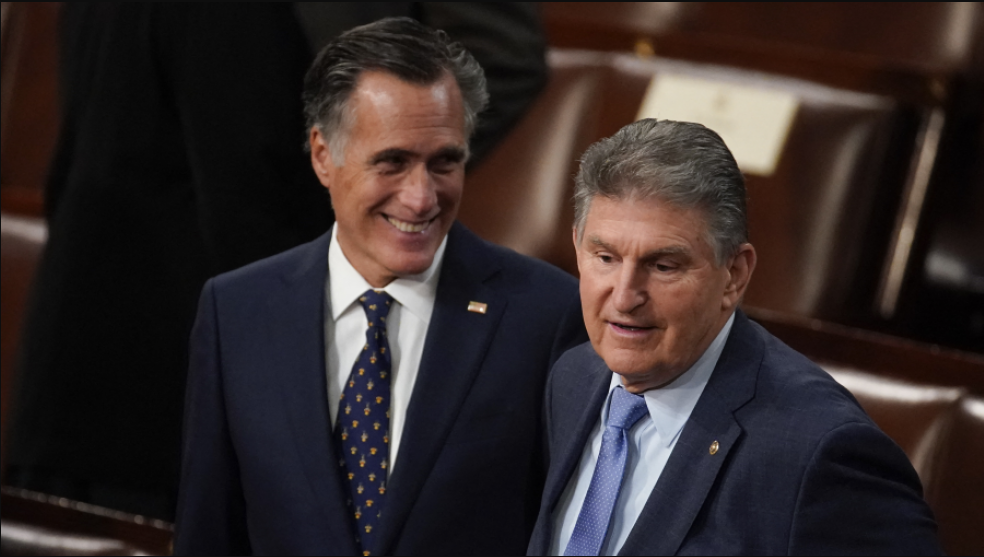sens. Glove Romney of Utah and Joe Manchin of West Virginia presented a bill Thursday that would make a commission entrusted with settling the public obligation.
Cautioning that the country’s funds are “not all together,” Manchin said the bill would address the “impractical way” of the nation’s obligation. “I’m glad to present this realistic regulation with my companion and partner Congressperson Romney that would make a bipartisan, bicameral monetary commission to recognize extensive answers for take us back to a maintainable financial viewpoint.”
The subtleties: The bill, called the Financial Solidness Act, would lay out a 16-part commission comprised of 12 legislators and four external specialists. The commission would be expected to create a report by May 1, 2025, that proposes new regulation illustrating explicit strides for policymakers to take, fully intent on settling the proportion of public obligation to Gross domestic product in the span of 15 years and working on the dissolvability of government trust supports more than a 75-year time frame. Assuming that the commission’s work is supported, the proposed regulation would get “sped up thought” in the House and the Senate.
The bill is upheld by a gathering of representatives including Conservatives John Cornyn of Texas, Todd Youthful of Indiana, Cynthia Lummis of Wyoming and Thom Tillis of North Carolina; leftists John Hickenlooper of Colorado, Imprint Warner of Virginia and Jeanne Shaheen of New Hampshire; and free Kyrsten Sinema of Arizona.
The regulation is matched in the House by the Financial Commission Act, which was presented in September by Reps. Charge Huizinga, a conservative from Michigan, and Scott Peters, a leftist from California.
Inquired as to whether the new arrangement is just a replay of the Simpson-Bowles commission — the doomed work to settle the obligation in 2010 — Romney let CNBC know that while the arrangement for the new obligation commission is like Simpson-Bowles, conditions have changed meanwhile. “The obligation is currently two times the level that it was,” making more earnestness for legislators, he said, adding that the new commission likewise has a distinct cycle for getting any proposed regulation to Congress for a vote, in contrast to the past exertion.
Romney likewise stood up against the possibility that an obligation commission fundamentally implies slices to famous projects like Government managed retirement. “The fact of the matter isn’t everything is on the table on the grounds that neither one of us and no other individual is looking at changing our privileges for retired folks or individuals approaching retirement,” Romney said. Simultaneously, decreases for more youthful individuals who are still years from retirement would almost certainly be fair game.
Battlefronts are laid out: The backing bunch Government backed retirement Works put out an explanation endorsed by many work and moderate gatherings saying they are “areas of strength for in to the development of an obligation commission which has been advanced during the continuous discussion around government financing.” The gathering added that the “White House has precisely depicted such a commission as a ‘demise board’ for Government managed retirement.”
The gathering said that Congress can address obligation straightforwardly, without the requirement for a unique commission, and regardless, Government managed retirement ought to be avoided with regard to the conversation since “the program is absolutely self-subsidized, can’t pay benefits or related costs without the income to take care of the expenses, has no getting authority, and, hence, doesn’t add a penny to the deficiency.”
At the opposite finish of the political range, monetary traditionalists were happy with the proposition. “[A] commission is probable our best desire to handle America’s enormous difficulties,” the Panel for a Dependable Government Financial plan said in an explanation. “A commission can assist policymakers with expanding upon late monetary triumphs to show we can oversee and pursue hard decisions.”

